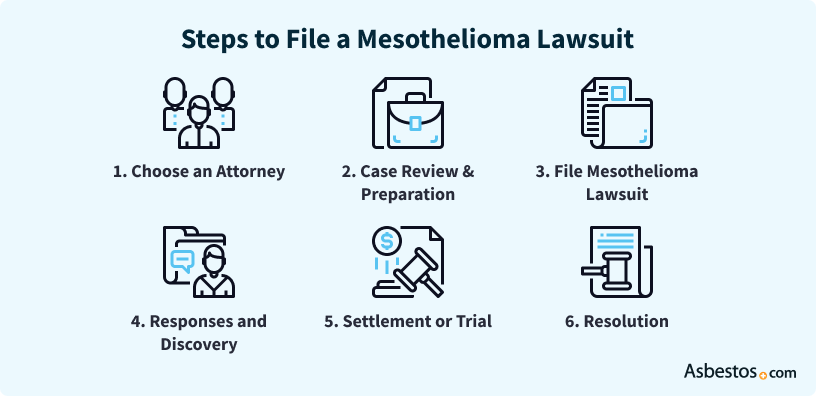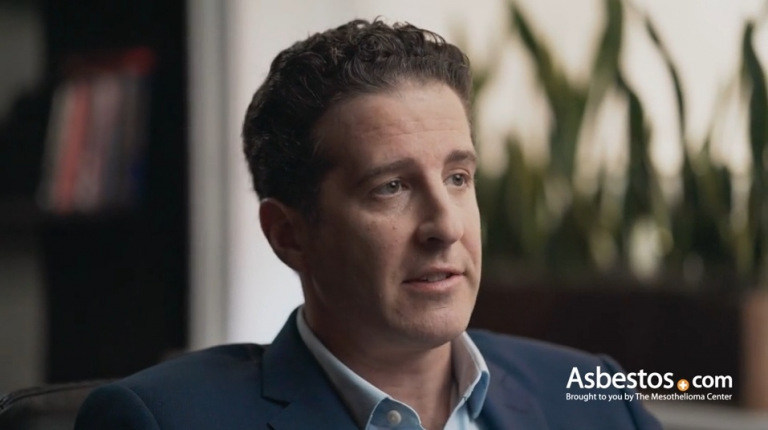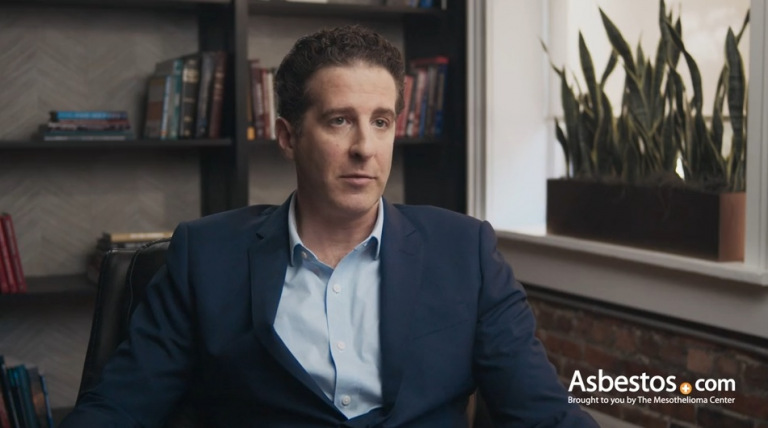Mesothelioma Lawsuit
A mesothelioma lawsuit is a legal claim filed by patients or their family members against companies responsible for asbestos exposure that caused illnesses such as mesothelioma or lung cancer. These lawsuits help victims recover compensation for medical expenses, lost income and other related costs.
Latest Mesothelioma Lawsuit Updates
A total of 1,907 mesothelioma lawsuits were filed in the U.S. in 2024, according to KCIC’s Asbestos Litigation: 2024 Year in Review. Of these filings, 78% were all filed in the top 10 jurisdictions for filing. Madison County, IL is the No. 1 jurisdiction with 5 times as many mesothelioma filings than the second highest jurisdiction.
Status of Asbestos Lawsuits
- June 2025: The South Carolina Supreme Court ruled against Atlas Turner in a mesothelioma case filed by Donna Welch after her husband Melvin died from asbestos exposure at his job in the 1960s. The court said the company refused to cooperate and placed it in default, meaning it lost automatically. Justices allowed access to Atlas Turner’s insurance assets to help compensate families. The ruling marks a major shift in mesothelioma lawsuits.
- May 2025: Johnson & Johnson has reopened a lawsuit against scientist Dr. Jacqueline Moline. The company is using a different strategy to discredit Moline for her claims that J&J’s talc-based products cause mesothelioma and other asbestos-related diseases. J&J’s original lawsuit was dismissed in 2024. J&J claims Moline falsified information in a study linking asbestos in talcum powder to mesothelioma, which was published in a 2020 research paper.
- April 2025: A U.S. bankruptcy judge turned down Johnson & Johnson’s $10 billion baby powder settlement plan. The proposal aimed to resolve more than 60,000 ovarian cancer lawsuits. The deal wouldn’t have affected any remaining mesothelioma lawsuits. Plaintiffs say the company’s talc products contain asbestos and can cause cancer. J&J plans to fight the outstanding talc lawsuits in court.
- March 2025: An Illinois jury has awarded $2.2 million in damages to the widow of a man who died from colon cancer linked to asbestos exposure. Before his death in 2018, Joseph Sanders was a plumber and sheet metal worker for CSX Transportation Inc. Plaintiff Annette Sanders claims CSX didn’t provide a safe working environment, leading to her husband’s illness.
Asbestos lawsuits serve a dual purpose. First, they hold companies accountable for exposing workers and consumers to asbestos. Second, they help asbestos disease patients take care of medical bills and other expenses related to their cancer.
Why Should Someone File a Mesothelioma Lawsuit?
One of the financial benefits of a successful asbestos lawsuit includes helping with the significant costs of mesothelioma treatment for you and your family. Mesothelioma lawsuits may also compensate you for pain and suffering.
Beyond covering steep medical bills, mesothelioma compensation may also help families with related expenses such as caregiving and travel. Your lost wages or loss of future income may also be covered.
Key Facts About Mesothelioma Lawsuits
- Mesothelioma trials can result in multimillion-dollar verdicts.
- Many mesothelioma cases settle out of court, with average payouts ranging from $1 million to $2 million.
- Patients diagnosed with mesothelioma may file a personal injury claim.
- Families who lost a loved one to mesothelioma may file a wrongful death claim.
- Deadlines limit when you can file claims. Mesothelioma lawyers can help you if you are eligible.
Many asbestos product manufacturers were aware of the health risks but failed to protect workers and consumers. For those who were exposed to asbestos because of this negligence, a lawsuit becomes a powerful tool in seeking justice. A qualified asbestos attorney can help you decide whether to pursue a lawsuit and can guide you through the process. Their expertise can help you receive monetary damages that may build you a more secure financial future for your loved ones.
Mesothelioma Survivors Who Have Filed Asbestos Lawsuits
Mesothelioma survivor Epifanio Figueroa was exposed to asbestos-containing auto parts during his career in automotive work. He was diagnosed with peritoneal mesothelioma in 2016. Figueroa says filing a claim helped his family immensely. He was able to build a home for himself and his wife and help his loved ones. “It’s actually been a game changer for us. Also, I’ve been able to help my family, which I couldn’t before,” he said. “I have been able to leave a legacy for my kids and my grandkids.”Survivor
Survivor Kim Madril received a pleural mesothelioma diagnosis in 2019. Her asbestos exposure occurred in art and automotive shop classrooms during middle school and high school. Madril felt nervous about filing a mesothelioma lawsuit. “I was very anxious and scared about it. And in the end, I thought, hey, it wasn’t that bad,” she said. “And I think if you have the right support, the right legal team, if you don’t have any expectations, it makes the process much easier.”
Use our calculator to quickly understand what compensation you may be eligible for and understand your rights — all at no cost to you.

Types of Mesothelioma Lawsuits
A mesothelioma lawsuit is a product liability claim patients and their families can file against companies that manufactured asbestos-containing products. The 3 most common types of mesothelioma lawsuits are: personal injury lawsuits, wrongful death lawsuits and product liability lawsuits.
Mesothelioma patients typically file personal injury lawsuits. Families who lost a loved one may file a wrongful death claim. Both may be considered product injury lawsuits because they involve individuals who were exposed to asbestos through harmful products.
| Disease | 2024 Filings | 2023 Filings | 2022 Filings |
|---|---|---|---|
| Mesothelioma | 1,907 | 1,940 | 1,896 |
| Lung Cancer | 1,644 | 1,577 | 1,356 |
| Other Cancer | 76 | 65 | 65 |
| Non-Malignant | 228 | 267 | 276 |
| Unknown | 76 | 80 | 113 |
Mesothelioma cases comprised 49% of all asbestos lawsuits in 2024, according to KCIC. In its latest industry report, KCIC notes the most significant disease-related change was a 4% increase of asbestos-related lung cancer filings from 2023 to 2024.
Speaking with Patient Advocates and legal experts to help you understand your legal options can help. They can share a unique perspective with you about options and top law firms to speak with for initial consultations. As a survivor or family member facing significant health care costs, an asbestos lawsuit may be right for you.
Personal Injury Lawsuit
A personal injury lawsuit is a legal claim filed by a mesothelioma patient. Mesothelioma lawsuits can name various asbestos companies responsible for exposing them to the carcinogenic mineral. If the lawsuit is successful, the mesothelioma patient receives compensation for their injury.
Timing can affect your eligibility for a personal injury lawsuit. Each state has a different mesothelioma statute of limitations, which sets a time limit of typically around 2 or 3 years for a plaintiff to file a lawsuit. The statute of limitations usually begins to run from the date a patient is diagnosed with mesothelioma.
I think it’s important for patients to know that it’s a group decision as to how a case is handled. We provide the legal advice, but we also put together a range of different options depending upon what a client is physically capable of doing.
Wrongful Death Lawsuit
A wrongful death lawsuit is filed by the estate of a deceased mesothelioma patient. Money awarded from an asbestos case filed after death may include compensation for medical bills, funeral expenses, lost financial support, loss of companionship and past pain and suffering.
If a mesothelioma patient files a personal injury lawsuit but dies before resolution, it can be converted to a wrongful death lawsuit. The estate can then continue pursuing the mesothelioma lawsuit. The estate is the recipient of any funds awarded in this lawsuit.
Product Liability Lawsuit
Mesothelioma lawsuits may be considered product liability claims because they allege an asbestos-containing product caused a personal injury or wrongful death. The areas of product liability law involved in asbestos lawsuits include negligence, strict liability and breach of warranty.
Once exposure to an asbestos product has caused asbestos-related illnesses or death, the injured party or surviving loved ones may file a lawsuit. A company’s failure to warn employees and consumers about the dangers of asbestos is often the basis for liability in a lawsuit.
Who Can File a Mesothelioma Lawsuit?
Mesothelioma patients and family members are eligible to file a mesothelioma lawsuit. Anyone interested in filing an asbestos lawsuit must provide documentation proving they or their loved ones were exposed to asbestos and received a mesothelioma diagnosis or other asbestos-related disease.
Documentation demonstrating asbestos exposure may include employment records, co-worker testimony and medical reports. A lawyer who specializes in asbestos litigation can help collect documentation. This includes people who didn’t know their jobs involved asbestos products.
Skilled law firms have investigators who research your work history and evaluate other places where you may have been exposed. Evidence to help prove your case is gathered during what’s called the discovery phase.
You may be eligible to file a wrongful death lawsuit if you’ve lost a loved one to mesothelioma. The estate representative directs if and how such a lawsuit proceeds.
I was happy to learn that you can get financial assistance from companies that have asbestos in their products.
What Could Affect My Eligibility to File an Asbestos Lawsuit?
Time limits can affect your eligibility to file an asbestos exposure lawsuit. Each state has a different mesothelioma statute of limitations, which sets a time limit of typically around 2 or 3 years from diagnosis for a plaintiff to file a lawsuit.
While it’s best to begin your case as early as possible, several factors can impact the statute of limitations for an individual case. Speak with a mesothelioma lawyer about your specific options.
How to File a Mesothelioma Lawsuit
To file a mesothelioma lawsuit, it’s easiest if you find an asbestos attorney who will prepare and file a legal complaint with a court. Your attorney will handle the filing process from start to finish. They will advise the best course of action for your case and communicate throughout the litigation process.
The litigation process may take several months or years. If you’re very sick, your attorney may ask the court to speed the process along. Your attorney will advocate on your behalf throughout each step.

1. Choose an Attorney
An important first step in a successful filing process is choosing an attorney experienced in asbestos claims. Top mesothelioma law firms should provide you with a free consultation to talk about your case and address your legal options.
You can prepare for an initial consultation with a law firm by gathering relevant information about your diagnosis and how you were exposed to asbestos. Don’t worry about recalling all the details now or being able to answer every question. A good mesothelioma law firm will help investigate your asbestos exposure history to aid your lawsuit.
2. Case Review and Preparation
A case review is also called a case evaluation. This is an opportunity for you and the asbestos law firm to learn about each other. How the firm handles the case review process will tell you a lot about how it operates and communicates with clients.
The first steps of a mesothelioma case review can take place virtually or in person. Often, the review begins with a phone conversation between the patient and the asbestos attorney. The attorney will ask broad questions to learn more about the patient’s diagnosis and asbestos exposure.
3. File Mesothelioma Lawsuit
Your attorney will research what lawsuit and asbestos compensation options best fit your individual needs. A skilled attorney will help you prepare all the documentation needed to support your lawsuit. They will handle everything when you file a personal injury lawsuit, a wrongful death lawsuit or an asbestos trust fund claim.
After gathering relevant information, your attorney will file the lawsuit on your behalf. They will manage the legal proceedings and recommend when to take a settlement offer or negotiate for more compensation.
It’s so important for mesothelioma patients to go through the litigation process. They can tell their story in front of a jury of their peers to say it’s not right that a corporation knew or should have known about a poison they were putting into their products and did it anyway.
4. Responses and Discovery
Each defendant in your mesothelioma lawsuit will receive a copy of your complaint. They will have a certain amount of time, usually 30 days, to respond. Defendants rarely admit fault. They often deny allegations and argue against your complaint’s validity. Defendants may contend that someone else is to blame. Your attorney will respond and argue on your behalf.
Lawyers on both sides will gather information about your allegations. Plaintiffs and defendants answer questions, produce documents and take part in depositions. Some of the information may become evidence used at trial. During a deposition, questions are answered under oath. This is often done from the comfort of your own home and under the guidance of your attorney.
5. Settlement or Trial
Before a trial starts, defendants may offer you money to resolve the case. Mesothelioma settlements depend on multiple factors and can influence your decision about whether to go to trial. If you decline a settlement offer, it’s possible the defendant will make another offer. Your attorney will negotiate on your behalf.
Going to trial is rare. Even if a case does go to court, you may not be required to appear. The trial process varies depending on multiple factors.
Results depend on factors such as your history of asbestos exposure, the state where the lawsuit is filed and your medical history. If you win and the defendant doesn’t appeal, you may start receiving payments a few months after the verdict.
6. Resolution
If you win the trial, asbestos defendants may decide to file an appeal. There is a limited amount of time to file an appeal, usually between 30 and 180 days after the verdict. This may delay any monetary award, but defendants will need to post a bond for the amount awarded while the appeal proceeds.
If the defendants lose their appeal, you’ll receive payment. If the appeal is successful, defendants may end up paying a smaller amount or nothing at all.

Find out which type of mesothelioma lawsuit is right for you.
Get Your Free GuideNotable Mesothelioma Lawsuits
Some of the most notable mesothelioma verdicts have reached and exceeded tens of millions of dollars. The average asbestos verdict in 2023 was $20.7 million based on an analysis of legal cases that year. If your case proceeds to trial, there is a possibility of reaching a settlement. Most cases are resolved through settlements, which average between $1 million to $2 million, according to legal experts.
We follow the latest mesothelioma lawsuits to provide you an understanding of the types of awards plaintiffs can receive as part of their legal compensation. The following notable asbestos lawsuit verdicts represent recent outcomes and historically significant cases.
Significant Asbestos Verdicts
- $43 million: Awarded to a woman in 2022 over exposure to asbestos fire doors.
- $29.4 million: Awarded in a talc lawsuit to a long-time talcum powder user in 2019 over exposure to talcum powder contaminated with asbestos.
- $24.4 million: Awarded to the family of a janitor in 2024 who filed a lawsuit alleging his asbestos exposure resulted from his work at an Avon manufacturing facility.
Verdict amounts have historically varied widely depending on the specific circumstances of each case. You and your lawyer can discuss the typical mesothelioma lawsuit settlement amount, average verdict amounts, and the details in your individual case as you navigate the litigation process together.
The state where you file can also impact mesothelioma compensation. An experienced mesothelioma attorney can help you and your family decide the best jurisdiction in which to file your asbestos claim.
Common Questions About Mesothelioma Lawsuits
- What are mesothelioma lawsuits?
-
A mesothelioma lawsuit is a legal claim people with mesothelioma or their families file against the companies that made asbestos products. These claims say the companies are responsible for the asbestos exposure that caused their illness. Plaintiffs can get money for medical bills, legal fees or lost wages.
- How long does a mesothelioma lawsuit take?
-
A mesothelioma lawsuit may take anywhere from a year or more, depending on the jurisdiction where the lawsuit was filed.
Answered By: Carl Money, Mesothelioma Attorney, Nemeroff Law Firm
- How much will I need to pay a mesothelioma lawyer?
-
It does not cost anything to hire a mesothelioma attorney. A mesothelioma attorney represents you on a contingency fee basis (no win, no fee) so that you have no out-of-pocket costs. The mesothelioma attorney only receives a fee if they obtain compensation for you and your heirs.
Answered By: Carl Money, Mesothelioma Attorney, Nemeroff Law Firm
- What should you expect from a mesothelioma lawsuit?
-
You should expect to meet with an attorney so that they can obtain a contract, authorizations for medical records and employment records, and take notes about your history of asbestos exposure.
Answered By: Carl Money, Mesothelioma Attorney, Nemeroff Law Firm
- Will I need to travel?
-
Generally, you do not need to travel. The attorney will come to your house and obtain all necessary information to pursue litigation and file claims against the asbestos trusts.
Answered By: Carl Money, Mesothelioma Attorney, Nemeroff Law Firm
- Who are the parties involved in a mesothelioma lawsuit?
-
Mesothelioma lawsuits are often filed against companies that manufactured, distributed, or used asbestos-containing products without disclosing its risks to people.










